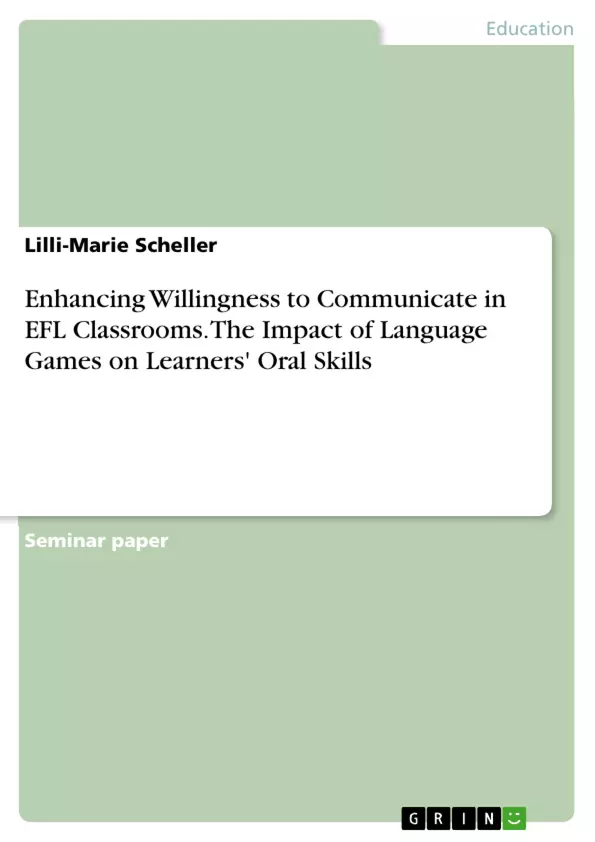This paper investigates the role of language games in promoting foreign language learners' willingness to communicate (WTC) in English as a Foreign Language (EFL) classrooms. Drawing on key theories of second language acquisition, including the relationship between communication, interaction, and language learning, the paper explores how language games can reduce foreign language anxiety (FLA) and encourage active participation. The study focuses on learners aged 12 to 15 and aims to evaluate the effectiveness of language games in increasing oral language production, particularly in vocabulary and fluency. While this paper offers a comprehensive theoretical framework, the study cannot be conducted due to current limitations, leaving room for future research.
Inhaltsverzeichnis (Table of Contents)
- Introduction
- Background to the study
- Research context
- Hypotheses
- Research Questions
- Study design
- Data collection methods
- Data analysis methods
Zielsetzung und Themenschwerpunkte (Objectives and Key Themes)
The main objective of this study is to investigate whether incorporating language games in the introductory phase of EFL lessons can enhance learners' willingness to communicate (WTC) and reduce foreign language anxiety (FLA). The study also aims to evaluate the effect of language games on learners' oral language production (vocabulary and fluency). The research focuses on learners aged 12-15.
- The impact of language games on Willingness to Communicate (WTC) in EFL classrooms.
- The relationship between language games and Foreign Language Anxiety (FLA).
- The effect of language games on learners' oral language production (vocabulary and fluency).
- The role of communication and interaction in second language acquisition.
- Affective factors influencing willingness to communicate in a second language.
Zusammenfassung der Kapitel (Chapter Summaries)
Introduction: Introduces the concept of willingness to communicate (WTC) in the context of second language acquisition and highlights the importance of communicative competence in EFL teaching. The study's objectives and structure are outlined.
Background to the study: This section explores the significance of communication in learning and the role of speaking skills in effective communication. It discusses the concept of WTC, its complexities, and the influence of various factors, including anxiety, on learners' willingness to participate in L2 communication.
Schlüsselwörter (Keywords)
Willingness to Communicate (WTC), Foreign Language Anxiety (FLA), Language Games, EFL, Second Language Acquisition, Oral Language Production, Communicative Competence, Affective Factors.
- Arbeit zitieren
- Lilli-Marie Scheller (Autor:in), 2022, Enhancing Willingness to Communicate in EFL Classrooms. The Impact of Language Games on Learners' Oral Skills, München, GRIN Verlag, https://www.grin.com/document/1509964



